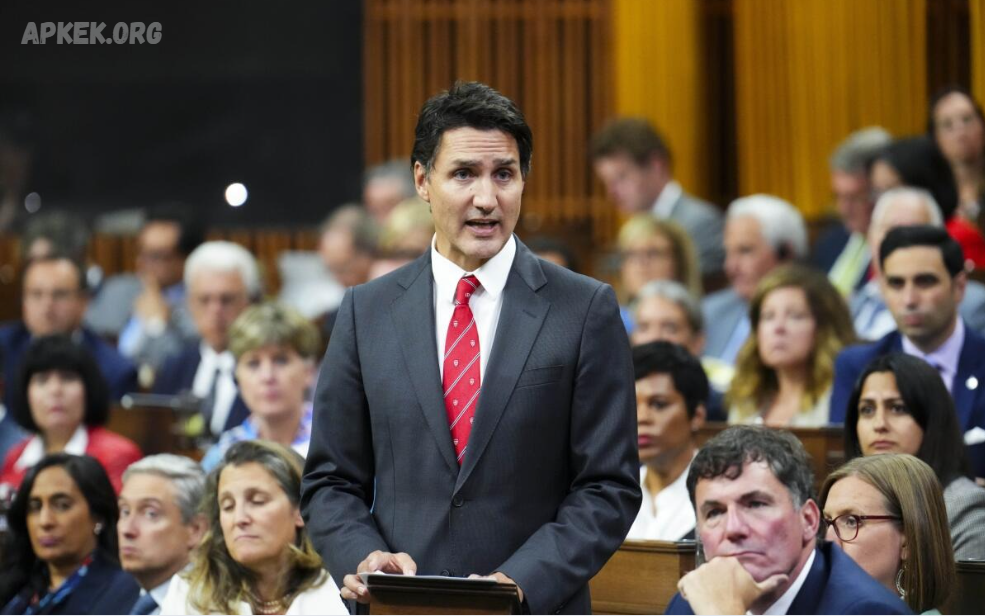Tensions between Canada and India have escalated after Canada expelled a top Indian diplomat in connection with the murder investigation of Hardeep Singh Nijjar, a prominent Sikh activist. Nijjar, a Canadian citizen and vocal supporter of Khalistan (a proposed independent Sikh state), was shot dead in British Columbia in June. His death has sparked not only community outrage but also a deeper probe into possible foreign involvement.
Canadian Prime Minister Justin Trudeau stated in Parliament that there were “credible allegations” linking Indian government agents to Nijjar’s killing. These remarks have sent shockwaves through international diplomatic circles, prompting Canada to take the unprecedented step of expelling a senior Indian official. The move has drawn strong reactions from India, which has firmly denied any involvement and responded by expelling a Canadian diplomat in return.
This diplomatic standoff has significantly strained relations between the two nations, both of which have large diaspora populations and close economic ties. The Sikh community in Canada, one of the largest outside India, is demanding answers and justice. As investigations continue, the world watches closely, with concerns mounting about sovereignty, freedom of speech, and the consequences of international interference.
How Canada’s Diplomat Expulsion Shook International Relations
Canada’s decision to expel a high-ranking Indian diplomat has sent ripples across the global diplomatic stage. This bold move came amid an active investigation into the killing of Hardeep Singh Nijjar, a Sikh activist and Canadian citizen. The Canadian government claims it has credible evidence suggesting the involvement of Indian government agents—an accusation that has sharply heightened tensions between the two nations.
India swiftly denied the allegations, calling them “absurd” and “motivated,” and responded by expelling a Canadian diplomat in retaliation. This tit-for-tat escalation has frozen talks, strained trade negotiations, and raised concerns about the safety of diaspora communities in both countries. The expulsion marked a rare and serious move that highlights how internal matters, such as the activism of diaspora groups, can have major international consequences.
The broader impact of this diplomatic fallout is now being felt across sectors—from intelligence cooperation to education and immigration. Allies of both countries are watching closely, urging calm and dialogue. With global trust and cross-border cooperation at stake, the situation underscores how fragile international relations can become when national security, political ideologies, and community activism collide.
Why Canada Expelled an Indian Diplomat: What You Need to Know
Canada’s expulsion of a senior Indian diplomat in 2023 marked a turning point in its relationship with India. The move came after Prime Minister Justin Trudeau announced that Canadian intelligence had gathered credible allegations linking Indian government agents to the killing of Hardeep Singh Nijjar—a Canadian citizen and Sikh activist—on Canadian soil.
Hardeep Singh Nijjar was a known supporter of the Khalistan movement, which advocates for a separate Sikh homeland in India’s Punjab region. He was shot and killed outside a Sikh temple in British Columbia. His death raised concerns within Canada’s large Sikh community, and those concerns deepened when Trudeau’s government publicly suggested possible foreign interference.
In response to these allegations, Canada expelled an Indian diplomat identified as the head of Indian intelligence operations in the country. India rejected the claims and retaliated by expelling a Canadian diplomat. The situation quickly escalated into a diplomatic standoff, putting bilateral relations under strain. This case not only raises questions about national sovereignty and foreign interference but also highlights the growing challenges democracies face when addressing politically sensitive issues within multicultural societies.
How the Murder of a Sikh Activist Sparked a Global Political Crisis
The killing of Hardeep Singh Nijjar, a Sikh activist and Canadian citizen, did more than spark outrage—it triggered an international diplomatic crisis. Nijjar, an outspoken supporter of the Khalistan movement, was gunned down in June 2023 outside a Sikh temple in Surrey, British Columbia. While local authorities initially treated it as a targeted killing, the situation escalated dramatically when Canadian Prime Minister Justin Trudeau publicly linked the murder to agents of the Indian government.
Canada’s claim that there were “credible allegations” connecting Indian operatives to Nijjar’s death set off a chain of diplomatic reactions. Canada expelled a top Indian intelligence official, and India responded in kind. The rare accusation of a foreign government potentially orchestrating a killing on another nation’s soil raised alarms globally, drawing attention from allies and international observers alike.
The fallout has had widespread effects—stalling trade talks, cooling diplomatic ties, and raising serious concerns about national security, freedom of speech, and the role of diaspora activism. For many, this case has become more than a bilateral issue; it is now seen as a test of how democratic nations handle foreign interference, political dissent, and the protection of citizens in an increasingly interconnected world.
Read Also: How To Block Ads On Android Mobile – Remove Ads From Phone, Ads1, ADS 1
What Trudeau’s Allegations Mean for Canada-India Relations
Prime Minister Justin Trudeau’s public allegation that Indian government agents may have been involved in the killing of Hardeep Singh Nijjar marked a dramatic shift in Canada-India relations. While tensions between the two nations have simmered for years—largely due to Canada’s sizable Sikh population and their support for the Khalistan movement—this was the first time such a direct and serious claim had been made by a Canadian leader.
Trudeau’s statement in Parliament did more than highlight a criminal investigation; it accused a foreign government of potentially violating Canada’s sovereignty. This prompted the immediate expulsion of an Indian diplomat believed to be linked to the intelligence services. India responded with strong denials and retaliatory diplomatic action, including the expulsion of a Canadian official and warnings to Canadian travelers.
These developments have led to a deep freeze in bilateral ties. Trade talks have been paused, business cooperation has slowed, and political trust has eroded. The allegations have also put pressure on other allied countries to respond, while raising broader questions about foreign interference and accountability. Whether the relationship recovers depends largely on how both governments handle the ongoing investigation, international pressure, and their commitment to diplomacy over confrontation.
What Happens When a Diplomat Gets Expelled? Explained Simply
When a country expels a diplomat, it’s a serious political move that signals deep disagreement or mistrust between two nations. Expelling a diplomat means officially telling them they’re no longer welcome and must leave the country within a set time—often just a few days. This is usually done when one government believes the diplomat is acting inappropriately, such as interfering in internal affairs or engaging in espionage.
The process starts with a formal notice called a persona non grata declaration. This Latin term means “unwelcome person,” and once it’s issued, the diplomat must pack up and go home. No legal trial or public hearing is needed because diplomats are protected under international law, specifically the Vienna Convention on Diplomatic Relations.
In most cases, the other country responds by expelling one of the first country’s diplomats—this is called a “tit-for-tat” reaction. It’s a way of showing equal displeasure. These expulsions don’t usually involve violence, but they do damage diplomatic relations, delay cooperation, and increase political tension. In short, expelling a diplomat is one of the strongest tools a country can use short of breaking off relations entirely.
Frequently Asked Questions
How does this affect Canada-India relations?
Relations have become strained, impacting trade talks, diplomatic cooperation, and trust between the two nations.
Is this the first time Canada and India have had such tensions?
No, tensions have existed before, mainly due to differing views on the Khalistan movement and diaspora activism.
What does this mean for the Sikh community in Canada?
Many members are concerned about safety and political freedoms, demanding justice and transparency in the investigation.
Can this diplomatic crisis be resolved?
It can be, but it requires dialogue, investigation transparency, and a willingness to rebuild trust on both sides.
What role do other countries play in this dispute?
Allies and international organizations are monitoring the situation, urging restraint and support for lawful investigations.
Conclusion
The expulsion of a high-ranking Indian diplomat by Canada marks a significant and rare escalation in diplomatic tensions between the two countries. Triggered by serious allegations linking Indian agents to the murder of Sikh activist Hardeep Singh Nijjar, this move has highlighted complex issues of national sovereignty, foreign interference, and the challenges faced by multicultural democracies. While India has strongly denied the accusations and responded with reciprocal actions, the dispute has unsettled long-standing economic and political ties. As investigations continue and both nations navigate this delicate situation, the world watches closely, hoping for a peaceful resolution that respects justice, security, and international diplomacy.

